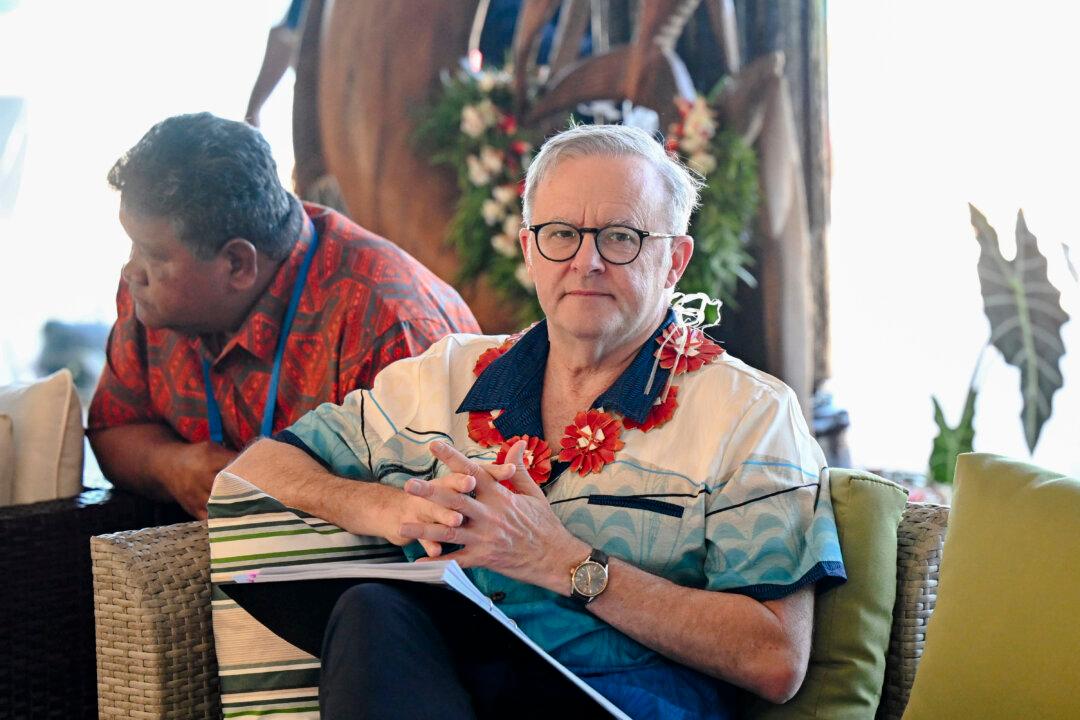Pacific Island countries (PIC) welcome Beijing’s contribution to their development while remaining cautious about its security presence. They continue to view Australia as their preferred security partner, according to a recent collaborative research.
The research report titled “How worried should Canberra be about China’s security interests in the Pacific?” was produced under a joint initiative between China Matters and the Australia-China Relations Institute at the University of Technology Sydney (UTS:ACRI).
As one 2024 report noted, PICs show a clear preference for traditional partners, report author Edward Sing Yue Chan wrote.
“Interviews by the author with officials in Suva [Fiji’s capital] and Honiara [Solomon Islands’ capital] reaffirmed a cautious stance toward PRC security engagement,” reads the paper.
Chan wrote that PICs continue to be concerned with transparency, citing an interview with a Fijian Ministry of Foreign Affairs official, who noted that they were closely watching the PRC’s coastguard and maritime militia activity in the South China Sea.
Additionally, PICs and Beijing have limited trust between them, he wrote, citing a Solomon Islands official’s remark that the bilateral relationship remains relatively new.
“Since we only made the switch [from diplomatic ties with Taiwan to Beijing] in 2019, we are still learning how to deal with China,” the official said.
“This lack of trust-building engagement contributes to PICs’ wariness regarding closer security ties with Beijing. When asked which partner they would prefer to work with, the answer is frequently unequivocal: Australia.”
Australia is seen as a more reliable security partner due to its longer-standing and more comprehensive relationship. In addition, Australia provides more investment, aid, and assistance programs compared with the PRC.
“The Australians have a better understanding of our needs,” said a Solomon Islands Royal Police officer.
Australian diplomats in the Pacific also affirmed the strength of these ties, describing Australia as being a “solid partner of choice” and suggesting that “China’s activities did not affect Australia’s presence in the region.”
While Beijing prefers to engage bilaterally, many PICs express a preference for interaction through regional mechanisms, the author noted.
“This approach allows them to amplify their collective voice and align with broader efforts to rationalise regional governance structures—particularly under the ongoing Review of the Regional Architecture in the Pacific Islands Forum,” he wrote.
Recommended Policies for Australia
The report recommends that the Australian government adopt a more multi-prolonged approach to Beijing’s expanding security presence in the Pacific.
“Rather than a blocking strategy, Australia’s interests would be better served by a multi-pronged approach that supports independent PIC diplomacy, one that grounds its responses in evidence-based assessments,” it reads.
For non-conventional security, Chan argued that Australia should carefully assess potential security risks alongside its own capabilities.
“While it is neither realistic nor sustainable for Australia to address all security challenges in the Pacific on its own, trilateral cooperation with the PRC and PICs is not viable due to the lack of trust between Canberra and Beijing,” he wrote.
He also suggested that Canberra sustain and deepen its investment in infrastructure development, particularly in the port sector, to ensure that Beijing’s involvement in critical infrastructure remains limited.
“Overall, Australia has been a solid partner of choice for Pacific Island nations, and it should continue to be that, without overreacting.”




